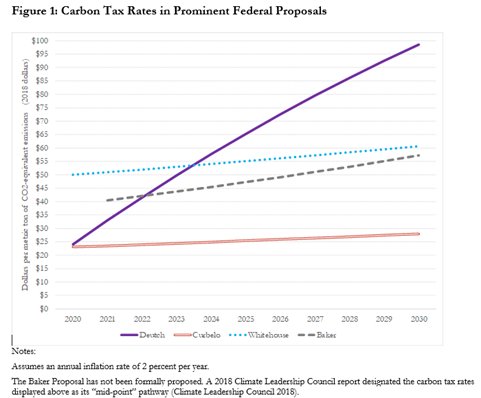
Climate economist at Columbia University SIPA Center on Global Energy Policy. Formerly at White House CEA/CEQ
How to get URL link on X (Twitter) App



 For Democrats: The social cost of carbon is built on flimsy models that cannot produce robust results. Using these models in policymaking is a house-of-cards that will eventually collapse.
For Democrats: The social cost of carbon is built on flimsy models that cannot produce robust results. Using these models in policymaking is a house-of-cards that will eventually collapse. 
https://twitter.com/voxdotcom/status/1597699488226971651Remember the bizarre injunction from the District Court earlier this year on the Administration's work on climate damages? You did not have to be a lawyer to see the utter craziness of that decision. But here was a legal take if you want one (2/x)

https://twitter.com/jasonfurman/status/1591177768922157058To begin with, EPA assumes that discount rates for the next few hundred years should be calibrated to interest rates on government borrowing. This is controversial among economists (let alone non-economists) but let’s just take this assumption as given...

 The old SCCs were based on deterministic and unrealistic emissions projections. The new versions, based on some great work coordinated by @rff, are probabilistic projections that are more plausible (to the extent any forests to 2300 are plausible)...
The old SCCs were based on deterministic and unrealistic emissions projections. The new versions, based on some great work coordinated by @rff, are probabilistic projections that are more plausible (to the extent any forests to 2300 are plausible)... 
https://twitter.com/MaxCRoser/status/13270092337207992341. They don't account for our ability to use climate policy to improve the economy in ways we might not do otherwise, like investing in crumbling infrastructure, accelerating innovation, or using carbon pricing revenue in pro-growth ways (2/5)

https://twitter.com/RoKhanna/status/1071485312247971841I keep reading suggestions that paying for decarbonization is similar to how the government picks up the tab for priorities like military spending. This isn’t really how it works. (2/8)


